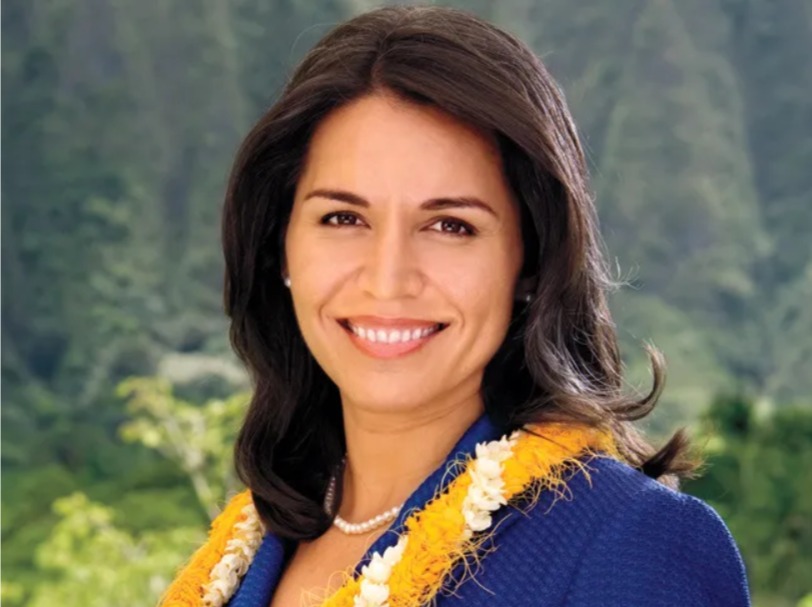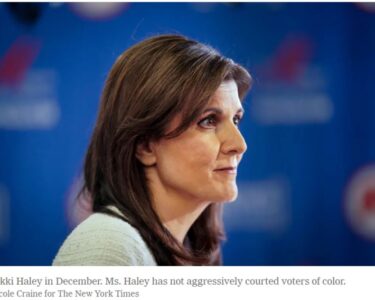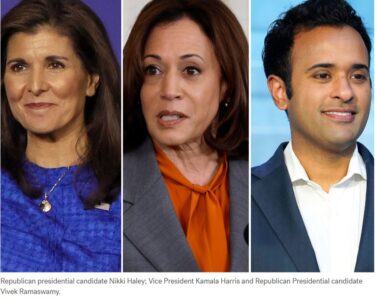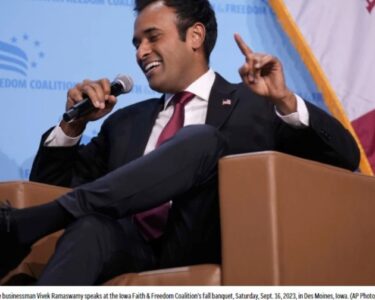Calling Tulsi Gabbard a ‘Fake Hindu’ is Offensive and Misinformed
Jeffery D. Long
Professor of Religion and Asian Studies, Elizabethtown College
Sadly, but unsurprisingly, the candidacy of Tulsi Gabbard, the first Hindu American to run for President, has evoked a strong and rapid backlash of media attacks.[1] Of course, any person who runs for public office should, quite rightly, expect to be on the receiving end of extensive scrutiny. This is how we select our leaders in a democracy, at least ideally. It involves an extensive critical examination of the views and character of each candidate. In the end, hopefully, the public will become educated about the stances and qualities of the candidates and make an informed choice.
Recent attacks on Tulsi Gabbard, however, have strayed into the territory of interrogating her religious beliefs in ways that are both offensive and misinformed. The US Constitution clearly states that “no religious test shall ever be required as a qualification to any office or public trust under the United States.” The religious views of a candidate for public office can certainly affect that candidate’s views on a variety of issues. But it is the views of the candidate on those issues, not the religious affiliation on which those views may or may not be based, that is relevant to the candidate’s suitability for office.
We, as Americans, have been through this before: when Alfred Smith, a Roman Catholic, ran for President in 1928, when John F. Kennedy, also a Roman Catholic, ran for President in 1960, and when Mitt Romney, a Mormon, ran for President in 2012. We have also been treated to the spectacle of a gossip campaign claiming that Barack Obama, a Protestant, was a Muslim, as though being Muslim could disqualify one for political office in America. Each time a candidate with a religious affiliation perceived to fall outside the American mainstream runs for office (or, in the case of Obama, who is even alleged to hold such an affiliation), questions about the effect of that affiliation on the candidate’s fitness for office are raised. Such questions are wholly inappropriate and are based on ignorance of constitutional principles.
There are non-Indian Hindus who are accepted warmly, not only as Hindus, but as leaders and authoritative teachers of Hinduism, by the Hindu community at large.
Read the rest @ https://medium.com/@longjd/no-not-all-hindus-are-indian-718d2072e65d






